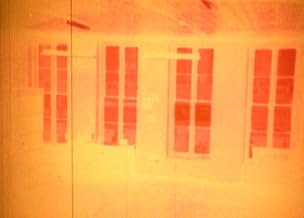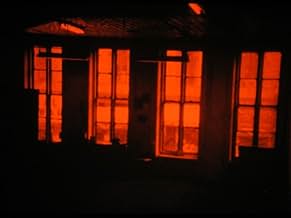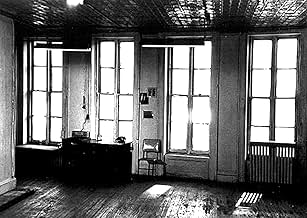The lodestar of contemporary avant cinema, Michael Snow's short purports to be a single zoom across a seedy office/warehouse space--a lens adjustment that takes forty-five minutes to complete. The truth of the matter--unmentioned even in Manny Farber's pioneering rave for the picture--is that the movie isn't all one shot. Snow fudges the "formalist rigor" for which he got his reputation: the movement from wide shot of the room to a pixel-enhancing closeup of a photograph of ocean waves is speckled with negative inserts, black, white and orange blank screens, and psychedelic rewinds of the scene that just came before.
Like Hollis Frampton's ZORNS LEMMA, WAVELENGTH is the kind of picture made to be written about, not really endured. The glowing descriptions of it in critics' prose are more provoking than the actual artifact itself. Two things remain striking and puzzling about it thirty-two years later. Why did Snow choose to make a near-hour-long demonstration of the zoom lens? Why would tracking have been any different--is the movie meant to be a statement on a subjective appearance of changed perspective, while the viewer really remains static? Or was Snow just infatuated with the gimmickry of the zoom? (Each calibration churning closer to the photograph has a home-movie clunkiness.)
The other is the oddly hippie-dippie tone of Snow's inserted gimcrackery. From the charwoman-looking extra playing "Strawberry Fields Forever" on a radio, then lumbering off like a bit player in an Ed Wood number, to the acid-flashback reruns of just-passed scenes, to the freak colorizations of arbitrary moments (as if we jumped to the POV of a UFO), the ambience is much more Big Brother and the Holding Company than Robert Bresson. It's the same playing-with-a-gizmo amateurism that mars the images using people in Stan Brakhage's DOG STAR MAN, and it makes Snow's academic astringency look like a pose.
(WAVELENGTH showed up again, ripped off in the unlikeliest place: the track into a photograph that forms the "Twilight Zone" epilogue to Kubrick's THE SHINING.)


















